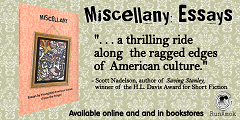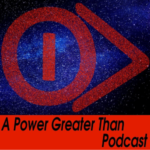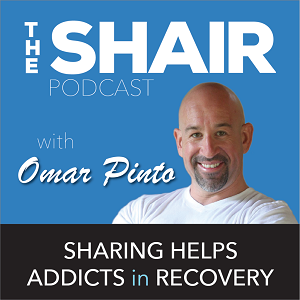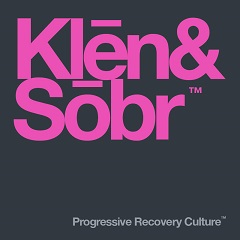Centricity
I can imagine the shock of hearing Copernicus’ discovery that the earth revolves around the sun.
“You mean, we aren’t the center of the universe?”
It is easy to believe—it has always been easy for me to believe—that everything revolves around me. Modern technology doesn’t help. Cell phones have their own gravity, their own worlds. It’s easy to think, after a few minutes clicking and swiping, that the poles of the digital universe hold my phone suspended. Advertisements cater to my needs. My posts engage with the world in an instant.
Here’s a great rhetorical question I was asked early in recovery: is it lonely at the center of the universe?
I still, despite years of sobriety, fall victim to that dangerous gravity. It usually goes something like this. I have a problem. I think about the problem. I pity myself for having that problem. Then I construct this bizarre and temporary universe wherein I am the only one who ever existed that has that problem. Before long, all the world is revolving on a creaky pivot around my petty concerns.
Enter sponsorship. If I have heard my sponsor say this once, I’ve heard him say it a thousand times. “Do you think you’re the only one out there struggling with this? The only father who has to care for his family? The only husband who has to account for the needs of his wife? The only man who has his own needs to account for?”
This drops my ego-centricity into a free fall where it can be swept away in the orbit of other people.
Central to my sobriety is striving to live a life centered around others.
I was in a meeting one time—one of those anonymous ones I won’t identify by name—and the topic was selfishness.
It, the meeting, began with the idea that helping other people to stay clean and sober is essentially a selfish act. Thank goodness for recovery because it allows for addicts and alcoholics, self-centered people, to help themselves as they help others.
The sharing sparked a debate: is it possible to be truly selfless in helping others? As is typical in a meeting of self-important people, the debate ballooned to grandiose proportions. Has there ever been a truly selfless person? Aren’t we all inextricably selfish by nature? Isn’t it better to be honest about that then delusional about our willingness to help others?
If you had been listening in, you might have thought you were listening to doctoral candidates in philosophy determining the course of postmodern thought.
I thought about the debate, weighed the pros and cons with my own experience. My thoughts were developing my own unique theory on the existence of selflessness when I realized something. Ain’t it the most selfish thing imaginable to project your selfishness onto the whole world? Isn’t it the definition of ego-centric to believe that your limited experience can be taken as proof that the world cannot operate any differently?
I laughed to myself a bit. I put my hand down to exit the debate. Of course true selflessness exists. The saints and martyrs have demonstrated that. But if you’re more of a sinner than a saint, like me, it helps to give your selfless actions a selfish reason. You can sort of trick your mind into doing the right thing by telling yourself it’s for the wrong reason.
Why do addicts and alcoholics need divine intervention to discover the joys of living for others?
That is a debate I have from time to time. It is in the very title of this blog. The miracle of the mundane would not exist if I hadn’t exhausted all other options for personal miracles. Who could have guessed that after chasing after all the things I thought I wanted that happiness is wanting all the things I already have instead?
My first job sober was washing dishes.
I remember getting bored with the job in a few weeks. I wanted to move onto to server or maybe chef. Gradually, my work suffered. I spent too much time desiring to do other things. But sobriety was growing on me. I read about becoming a worker amongst workers, an addict amongst addicts. I was praying and meditating. Most importantly, I wasn’t drinking or using.
I began to pay attention to my work more. While I was doing the same thing everyday, I began to enjoy the feel of hot ceramic, scrubbed clean. I began to enjoy the look of the silverware’s polished metal. The satisfaction of a job well done became satisfaction enough. Before long, I wasn’t washing the dishes because I wanted to get a raise or a promotion, but I was washing dishes because they were dirty. Someone had to give the people of that cafe clean plates to eat from.
My sister gave me a surprise visit in that time. It was the first time I would meet my nephew. I had been washing and scrubbing all morning when she surprised me at work.
I remember holding my nephew, sharing his gaze. It was the first time in my life that a surprise didn’t make me anxious and fearful. It was pure joy.
I was reading and writing a lot of poetry then. I had to. My experiences were outgrowing my ability to describe them. Poetry, story, the words of others are a great way—my only way—to grow beyond the limits of my experience.
I didn’t know it at the time, but holding my nephew was teaching me that this world is much better when I don’t suppose to be the center of it.
This was a brand new joy. It is what Wallace Stevens, I think, describes as the exactest element of joy in this poem.
Of Bright & Blue Birds & The Gala Sun
Some things, niño, some things are like this,
That instantly and in themselves are gay
And you and I are such things, O most miserable…
For a moment they are gay and are a part
Of an element, the exactest element for us,
In which we pronounce joy like a word of our own.
It is there, being imperfect, and with these things
And erudite in happiness, with nothing learned,
That we are joyously ourselves and we think
Without the labor of thought, in that element,
And we feel, in a way apart, for a moment, as if
There was a bright scienza outside of ourselves,
A gaiety that is being, not merely knowing,
The will to be and to be total in belief,
Provoking a laughter, an agreement, by surprise.
~ Wallace Stevens
Stevens, Wallace, and Holly Stevens. The Palm at the End of the Mind: Selected Poems and a Play. Vintage Books, 1990.
This was a brand new joy. It is what Wallace Stevens, I think, describes as the exactest element of joy.
There are plenty of antidotes to selfishness out there.
But, in a world that caters only to our ego, humility requires precision and discipline. The root of the word humility relates to the earth. That’s also where we get humus, the food of the soil. Humility is a grounding force. We must anchor ourselves to the earth.
Then, over time, like Copernicus, discover that we are orbiting a far greater force altogether.

 Previous Post
Previous Post Next Post
Next Post












Great read. I too am in recovery and can relate
Thank you Velma. Nice to hear from you.
The basis of karma yoga is to act without attachment to the outcomes. To give selflessly. To work without expectations. To love unconditionally.
It makes everyday life a continuous prayer of surrender. I aspire to this.
Seeing others in recovery behave in clearly selfish ways is distressing. But that’s part of it too.p – allowing others to live their own truth and, possibly, learn their own lessons. It’s not all about me. Lol I sometimes forget.
Lovely post. There is a lot to think of here.
Anne
Thanks Anne. I imagine your yoga practice is coming in clutch at the moment. Live, love, and let go. Those are words to love by. I can claim I’m doing my best—even when it isn’t good enough. Sometimes, it’s not.
Wow dude, yes, then Zen of the dishwashing thing! And someone near and dear popping in by surprise at the restaurant gig to ground ya and all the other good stuff! Yes, I too wanted to be elsewhere at times; I would be sweeping the floor fantasizing about hitting the lottery. on another day I remember listening to to the Berlin wall coming down from the transistor radio back in the kitchen in my first year. Was feeling some real synchronicity between my day to day recovery and the drama that was playing out.
What an experience! The listening to the wall fall I mean. I was similarly struck in the election of Obama in my first year. Not to get political, but in a similar way, I felt the world was changing with me.
“But, in a world that caters only to our ego, humility requires precision and discipline.” So true. The process is at times painful and at other times it can be full of peace- when the ego accepts it’s place. But the process is always rewarding.
The process! Yes! Thank you. It is where it’s at. I’m just not tuned into it. I want to always be tuned into the results. Not where it’s at. Great to hear from you Liz. Thanks for the kind comment.
Not only do you have a way with words, the message is thought provoking and powerful. Thank you for making me think, which is always a good thing. dp
Very kind of you, Dana, to say that. I appreciate it.